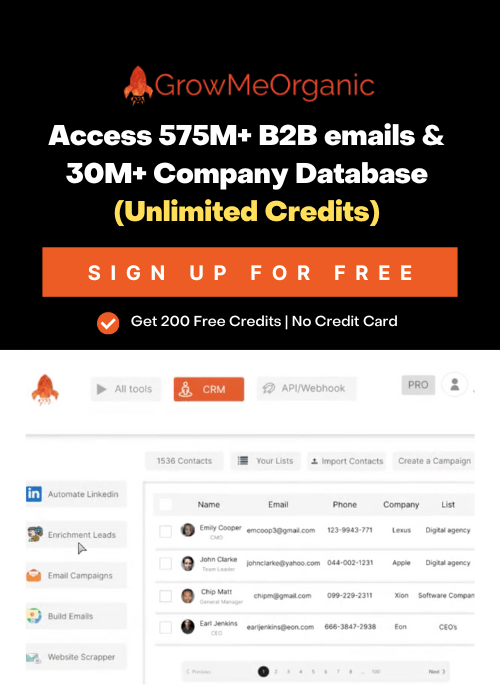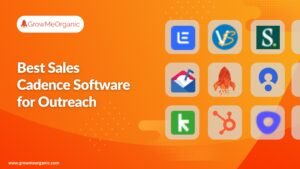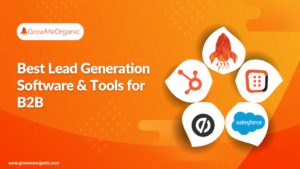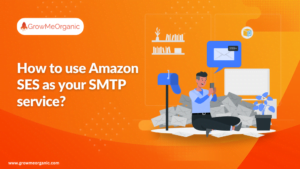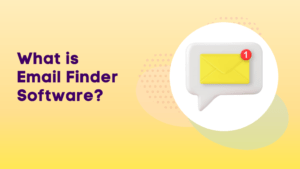Let’s be honest — starting a cold email agency in 2026 sounds Exciting… until you realize you’re juggling lead generation, copywriting, email deliverability, client reporting, and actual results — all at once.

Most agency owners either burn out after 3 clients or get stuck in “why isn’t this working?” mode.
This blog is different.
It’s not another recycled SaaS tutorial or fluff-filled thread. This is the real-world playbook on how to start a cold email agency — from landing your first 3 clients to automating your way past 20.
You’ll learn what actually works, what to avoid, and how to build systems that don’t collapse under pressure.
👉 If you’re tired of guessing what’s working…
👉 If you want a roadmap to land clients and keep them…
Bookmark this.
Because this blog will do what most courses can’t:
Show you how to win.
Why Start a Cold Email Agency in 2026?
Cold email is becoming the go-to growth engine for smart, lean businesses. Here’s why starting a cold email agency in 2026 is one of the most profitable, beginner-friendly moves you can make.
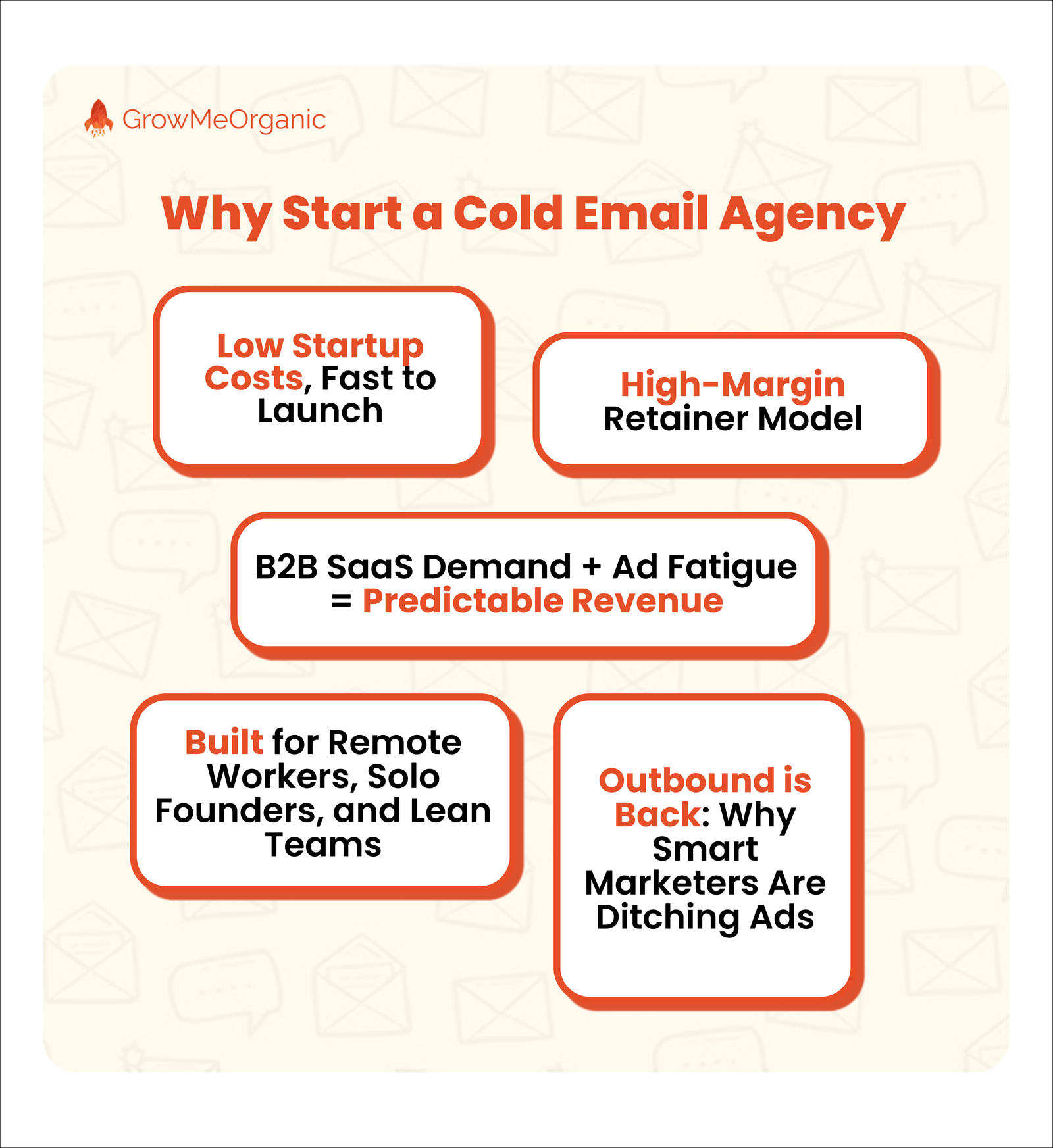
✅Low Startup Costs, Fast to Launch
You don’t need fancy software, a team, or upfront capital. A cold domain, a lead scraping tool, and a sending platform like Instantly or Smartlead is enough to start. You can be live within a week.
✅High-Margin Retainer Model
Cold email services typically charge $1,500–$5,000/month per client. With minimal recurring costs, this creates a pure-margin business. If you close just 3–5 clients, you’re looking at a $10K/month agency with 80%+ net profit.
✅B2B SaaS Demand + Ad Fatigue = Predictable Revenue
The B2B world is tired of ad platforms. Rising CPMs, tracking issues, and oversaturation are driving founders back to direct outreach. Cold email lets you reach decision-makers without competing in noisy ad auctions.
✅Built for Remote Workers, Solo Founders, and Lean Teams
You can run this agency from your bedroom, coffee shop, or Bali. No office. No team. Just you, a laptop, and internet. And if you do scale, systems make it easy to outsource delivery and keep overhead low.
✅Outbound is Back: Why Smart Marketers Are Ditching Ads
Cold email is predictable, measurable, and scalable. You’re not renting attention—you’re earning it. That’s why top marketers and founders are building outbound engines instead of pouring more cash into Meta or Google.
Your First 30 Days: Tactical Game plan to Land Clients
If you’re starting a cold email agency, your first 30 days matter more than you think. This is where you build trust with inbox providers, craft your outreach foundation, and set systems that help you scale later.
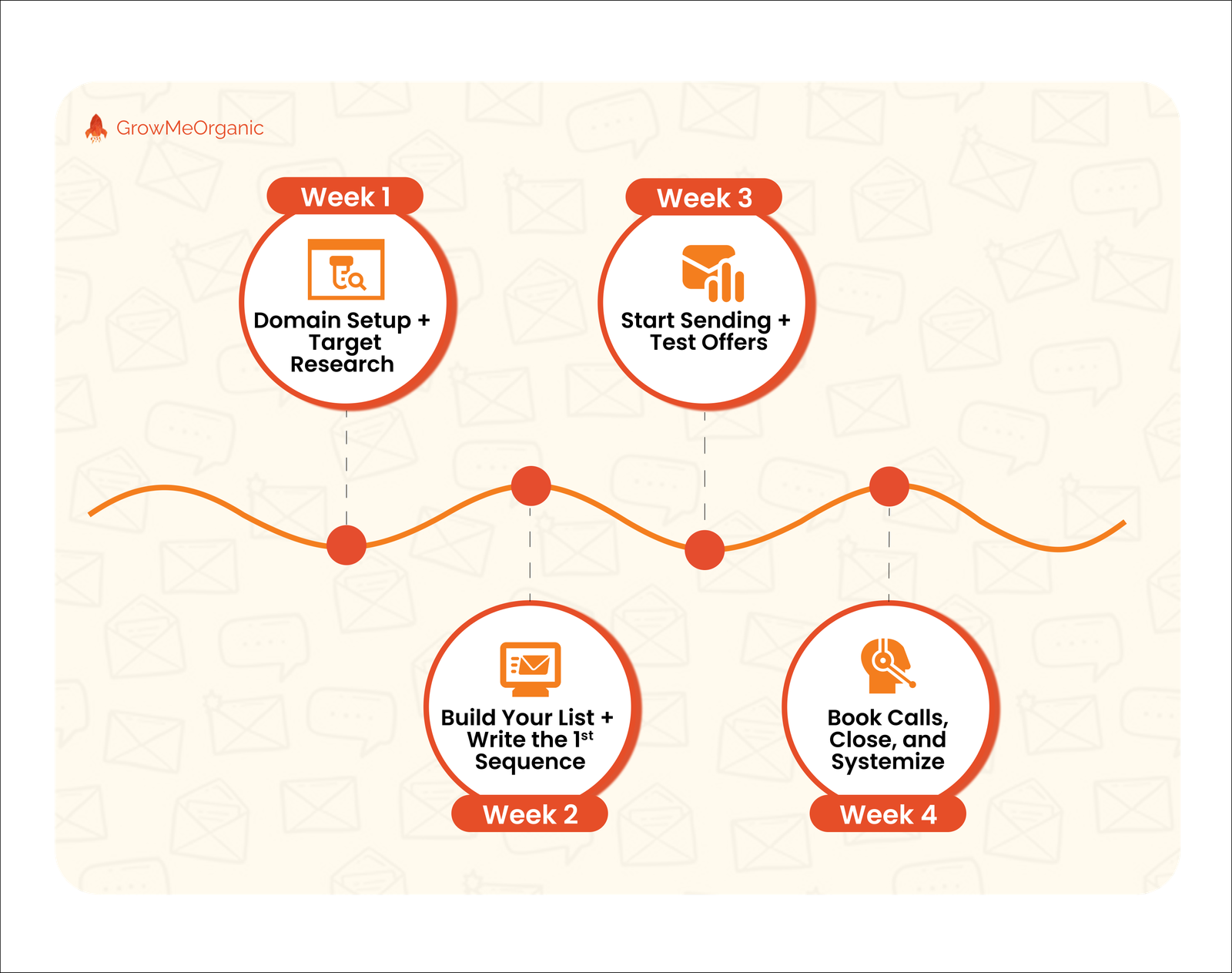
Here’s a step-by-step breakdown of what to do in each week.
🟠Week 1: Domain Setup + Target Research
Start by setting up a separate cold domain. Configure essential records like SPF, DKIM, and DMARC to ensure proper email delivery.
Begin warming it up with tools like Instantly, Mailreach, or Mailwarm—sending 20–40 emails per day with a slow, natural ramp-up.
While that runs in the background, invest your time in identifying your Ideal Client Profile (ICP). Don’t just define it as “SaaS” or “Agencies.” Go deeper—industry, team size, pain points, decision-makers, and average deal size.
🟠Week 2: Build Your List + Write the First Sequence
Now that your domain is warming, start building your lead list. Use tools like Apollo, Clay, or UpLead to extract verified emails that match your ICP.
Once you have a list, write your first cold email sequence. Keep it short—45–75 words. Personalize only where it matters (first line, offer relevance), and skip buzzwords. Focus on one clear pain point and one simple call to action, like “Open to a quick 15-min chat?”
🟠Week 3: Start Sending + Test Offers
This is the week you go live. Start sending 30–50 emails a day. Monitor replies, tweak lines, and keep refining your pitch.
Try testing 2–3 variations of your offer. For example:
📌 Cold email setup + strategy
📌 Fully managed outreach service
📌 Audit-based consultations with pay-per-lead pricing
This will help you understand which angle the market responds to—and which one could become your main service line.
🟠Week 4: Book Calls, Close, and Systemize
Once replies come in, your goal is simple: book calls and convert. Keep your pitch simple and ask the right questions:
🎯What’s your current lead gen process?
🎯What are your monthly targets?
🎯What’s stopping you?
After you close your first client,
Build an onboarding system. Outline next steps, weekly reporting, communication channels, and deliverables. This not only keeps you organized but also shows clients you’re serious.
Position Before You Prospect: The Niche-First Agency Playbook
Before you start scraping leads or firing off campaigns, pause
The smartest cold email agencies don’t start with lists.
They start with positioning.
“Pick a Pond Before You Fish”
Generic offers to generic audiences get generic results. When you pick a niche, everything sharpens — your message, your offer, your results.
Instead of saying:
“We help businesses grow with cold email.”
Say:
“We help Series A SaaS startups book 20+ demo calls per month with outbound.”
See the difference? The first line blends into the noise. The second stops a founder mid-scroll, because it speaks directly to them.
🟧B2B Niches That Actually Convert (And Why)
Not all markets are created equal. Some are high-churn. Some are slow to respond. These four verticals? They convert fast, pay well, and usually have a strong outbound fit:
⚡ SaaS
Best for: B2B tools solving high-ticket or urgent problems
Think CRM software, HR automation, AI productivity tools, or fintech APIs.
These startups are often funded, need predictable pipelines, and are open to experimenting with outbound, especially if they haven’t built strong inbound yet.
⚡FinTech
Best for: Companies in lending, insurance tech, debt management, or compliance
These firms handle regulated industries, which makes inbound slow. Outbound helps them target CFOs, brokers, underwriters, or enterprise buyers directly.
They also tend to have high margins — meaning they can pay for results.
⚡HealthTech
Best for: Appointment-based services or DTC medical products
Clinics offering virtual consults, mental health startups, and remote diagnostics platforms all benefit from cold email.
So do DTC players selling FDA-approved devices or supplements — especially if you can help them book calls with physicians, distributors, or channel partners.
⚡Agencies
Best for: Marketing, dev, and recruiting firms
Agencies already understand the value of leads, and usually need volume or better targeting. Recruiting firms hiring tech talent, or marketing shops selling SEO retainers, are often ideal cold email clients.
Bonus: they don’t need as much hand-holding.
🟧A/B Testing ICPs Instead of Assuming Them
Don’t just “pick a niche” and stick to it blindly. Test multiple Ideal Customer Profiles (ICPs) in parallel. Run 3–4 micro-campaigns with different segments and offers. Let data, not gut, decide where to double down.
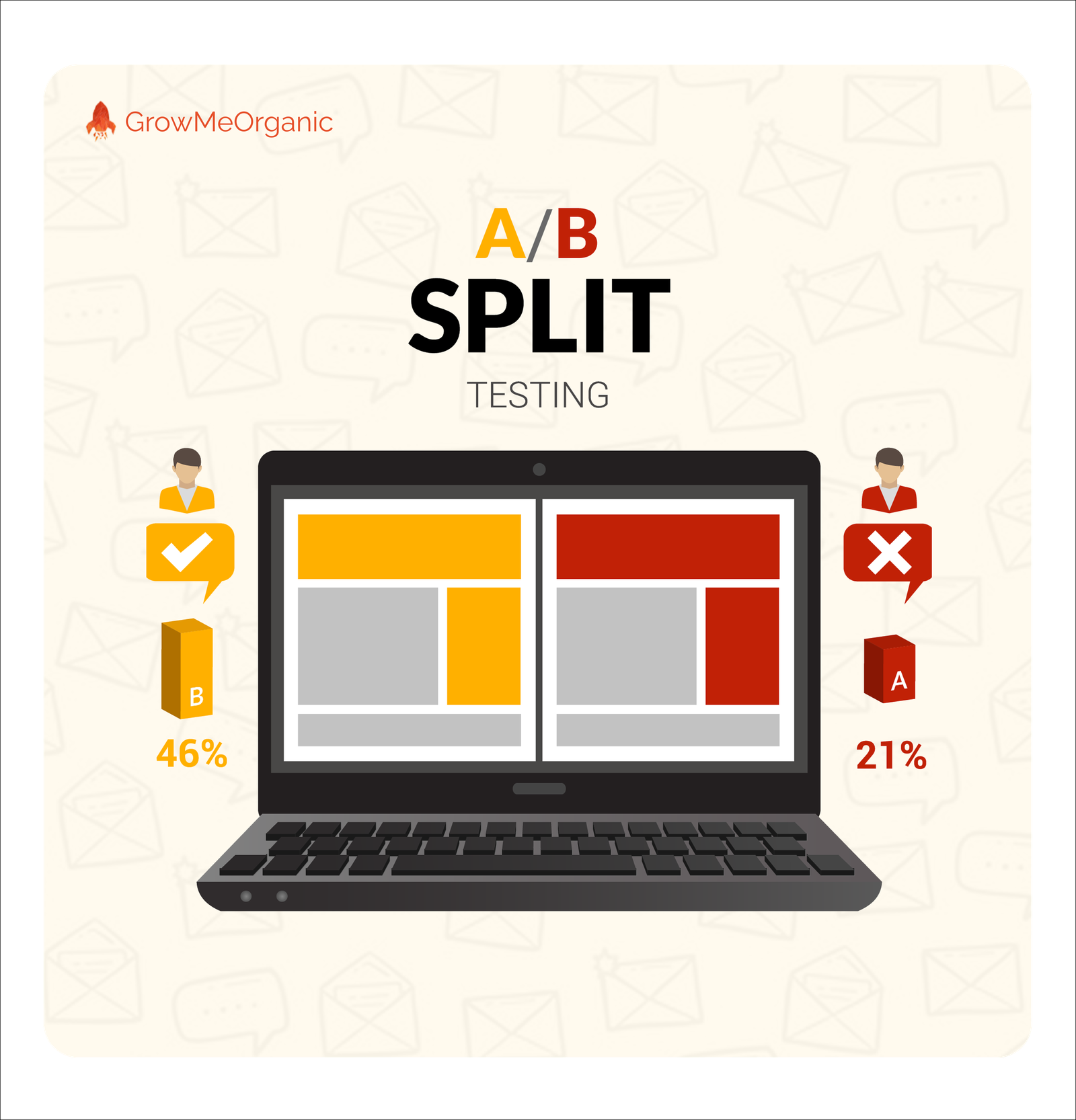
Example ICP Split Test:
- Offer: Demo booking for $3k/month
- Test A: HealthTech founders
- Test B: B2B SaaS founders
- Test C: Marketing agency owners
Whichever brings in calls fastest — that’s your niche for now.
🟧The Niche–Offer–Problem Triangle
Your entire outbound engine sits on one simple triangle:
“Niche → Offer → Problem”
Pick a niche. Identify a painful, high-stakes problem. Then build an offer that solves it fast. Simple to say. Rarely done well.
Examples:
📌 Niche: FinTech Lenders
Offer: 20 booked calls/month with loan brokers
Problem: Struggling to hit pipeline targets in Q3
📌 Niche: B2B SaaS
Offer: Full-service outbound system
Problem: Inconsistent inbound + ad fatigue
📌 Niche: Creative Agencies
Offer: 5 qualified strategy calls/week
Problem: Relying too heavily on referrals
— Someone who prints money with cold email
Step-by-Step Launch Guide: How to start a Cold Email Agency from Zero to Live
Most people overcomplicate launching. You don’t need a fancy website, 10K leads, or a cool agency name.
You need one thing: a working system that gets replies and books meetings.
Here’s that system — step by step.
Step 1: Pick Your Niche & ICP
Start narrow. Big TAM doesn’t matter if nobody replies.
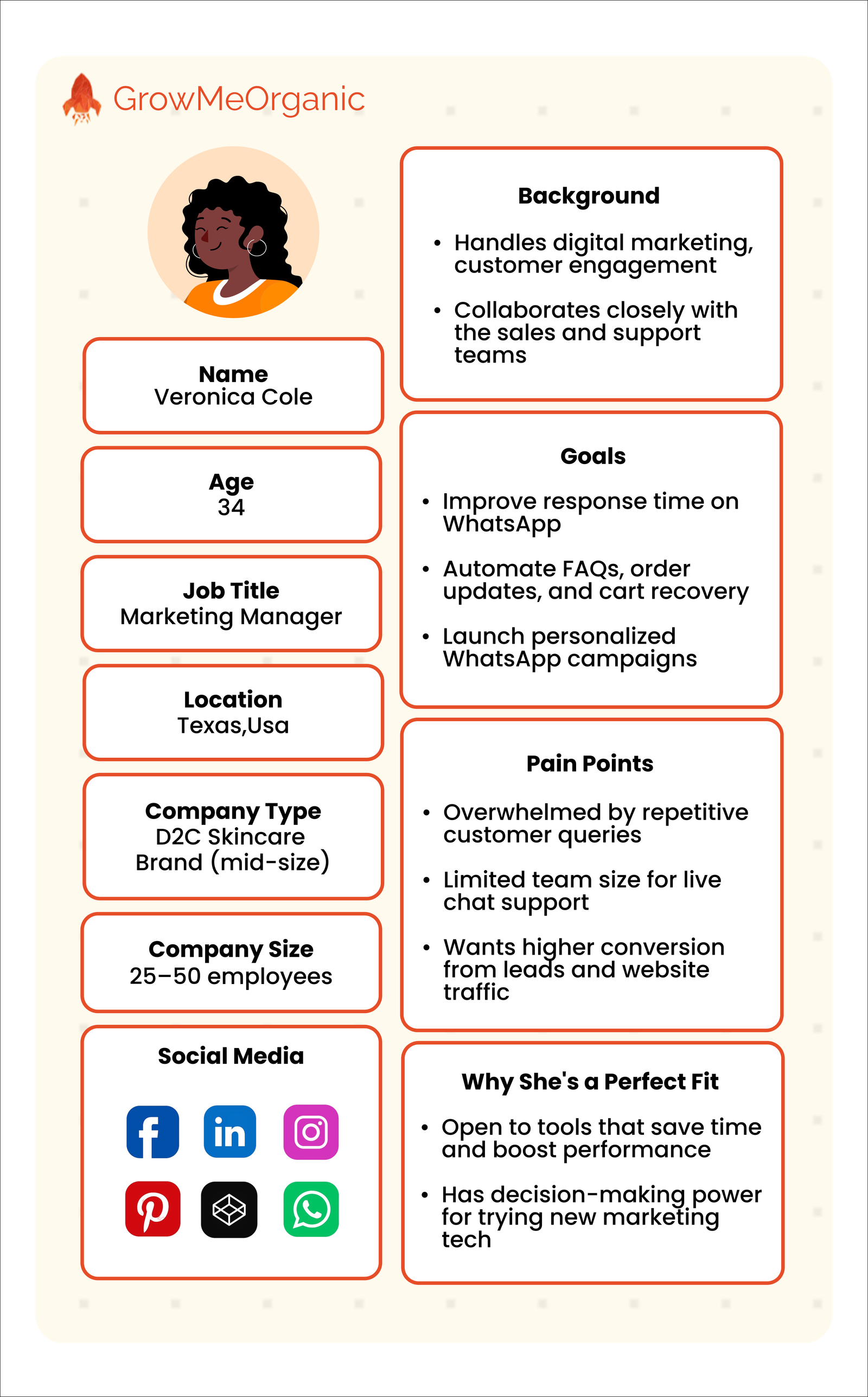
Go where:
✅The pain is obvious
✅The buyer has a budget
✅You can show fast results
Key ICP ingredients:
✅Job titles (e.g. Head of Growth, Revenue Ops Manager)
✅Pain points (e.g. lead quality dropping, CAC rising)
✅Value triggers (e.g. just raised, hiring SDRs, running ads)
Real-world ICPs:
✅B2B SaaS founders with <$10M ARR using HubSpot
✅Dental clinic chains expanding to 3+ locations
✅FinTech startups post-Series A in the US market
Step 2: Build Smart Lead Lists
This is where most founders mess up — by bulk scraping garbage leads.
Use GrowMeOrganic to build lean, targeted lists with:
- Enrichment (pulls LinkedIn, job titles, locations, etc.)
- Filters by industry, company size, funding, and tech used
- Segmentation into Tiers 1/2/3 based on buying signals
Here’s how to actually build those lead lists — without scraping junk data or relying on shady tools:
✅ LinkedIn Email Finder
- Extract B2B emails directly from LinkedIn profiles — manually or in bulk.
- Use filters like job title, region, company size, and keywords.
- Automatically pull name, company, domain, and LinkedIn URL.
- Great for Account-Based Marketing or Tier 1 campaigns.
✅ GrowMeOrganic’s Built-In B2B Contact Database
Search across millions of pre-verified leads using filters like:
- Industry
- Tech stack (e.g. using HubSpot, Salesforce)
- Revenue
- Hiring signals
- Location
No fluff. Just quality leads with verified contact info — ready to plug into your cold email system.
✅ Enrichment Engine
Upload a basic CSV with just names or websites — GrowMeOrganic enriches it with:
- LinkedIn profile
- Email address
- Company data (revenue, size, tech stack)
- Personalization lines like “posted a blog 3 days ago”
✅Verified Deliverability Checks
Every exported email runs through GrowMeOrganic’s real-time deliverability engine. It checks:
- Email server configuration (MX, SPF, DKIM)
- Bounce probability score
- Blacklist status of the domain
- Spam trap signals
Whether the email is role-based (like info@, hr@). Emails with high risk are flagged — so you only send to clean, verified inboxes.
This protects your sender score, keeps bounce rate low, and ensures your domain doesn’t get throttled by Gmail or Outlook.
Step 3: Craft a Magnetic Offer
If your offer is weak, no copywriter or tool can save you.
🔶What clients really want:
- Qualified meetings
- Lower CAC
- Predictable ROI in <30 days
🔶Offer stacks that convert:
- Copy + Strategy + Delivery
→ “We write the copy, build the list, run the outreach.” - Plug-and-play outbound engine
→ “SDR replacement — zero hiring, just pipeline.” - Pay-per-result models
→ “You only pay for booked meetings that show.”
🔶Winning Offer Examples:
- “30 demos/month for under $150 per demo — or we refund.”
- “Fully managed outbound that adds 12+ qualified calls in 21 days.”
- “We get SaaS founders off sales calls and back to building — in 10 days flat.”
Step 4: Setup Tools & Infrastructure
Time to build your outbound engine. Clean. Light. Scalable.
🔶Email Warmup:
- Set up SPF / DKIM / DMARC (use your domain host or EasyDMARC)
- Warm up inboxes for 2–3 weeks
- Use custom sending domains (e.g. name-agency.com)
🔶Outreach Delivery:
- GrowMeOrganic for multi-inbox sending, automation, and rotation
- Built-in warmup and email tracking
- Easy to scale across multiple clients without extra clutter
🔶CRM & SOPs:
- Use Notion for SOPs, lead tracking, and client dashboards
- Skip complex CRMs until you need them (Pipedrive, Close.com = optional later)
Step 5: Create Email Sequences That Convert
No 5-email spam blasts. Keep it tight, clear, and respectful.
🟠Winning Sequence Structure:
- Email 1: Hook + relevance + CTA
- Email 2: Social proof + CT
- Email 3: Reframe objection or urgency trigger
- Email 4: Soft nudge + exit option
🟠Formula:
Hook → Credibility → Relevance → CTA
🟠Personalization at scale:
GrowMeOrganic + GPT lets you pull in:
- LinkedIn job titles
- Company size or funding
- Custom opening lines that feel human
🟠Subject Line Rules:
- 6–10 words → 20% more opens
- Avoid caps, emojis, spammy terms
- Use curiosity > clickbait
→ “Saw this on your site” > “10X your pipeline today!”
Step 6: Launch & Test
This is your proving ground. Focus on signal, not perfection.
Your first 100 emails = data lab.
🟧Test variables:
- ICPs side-by-side
- Subject line types (short vs long, curiosity vs value)
- CTA phrasing (“worth a chat?” vs “open to a quick sync?”)
🟧Track what matters:
- Open rate → Subject line
- Reply rate → Copy + targeting
- Positive reply rate → Offer + ICP fit
Then? Refine your list. Sharpen your copy. Repeat.
How to Price Your Cold Email Services (Without Underselling)
Pricing is where most cold email founders panic. Go too low, and you attract nightmare clients. Go too high without proof, and you ghost your own pipeline.
Here’s how to price smart — and confidently.
📌The Three-Tier Pricing Model
🎯 Basic Tier
Perfect for startups or clients testing outbound for the first time.
- 1 inbox
- 1 sequence (3–5 emails)
- Lead sourcing + copy + delivery
- Reporting once per week
Avg: $500–$1,200/month
🎯 Growth Tier
Ideal for clients with working sales teams who need consistent volume.
- 2–3 inboxes
- 2+ sequences with A/B tests
- ICP refinement, lead gen + AI personalization
- Weekly reporting + 2 strategy calls
Avg: $1,500–$3,000/month
🎯 Premium Tier
For companies serious about scale — think outbound as a growth channel.
- 4+ inboxes + Smartlead or Instantly rotation
- Deep enrichment, targeting, CRM integration
- Copy + offer consulting + funnel optimization
- Slack channel + weekly live dashboards
Avg: $3,000–$6,000/month (or performance %)
📌Retainer vs Performance vs Hybrid
A retainer means clients pay a fixed fee every month. It’s predictable, helps newer agencies stay stable, and lets you focus on delivering consistent outreach. You own the process but take the risk if results stall.
A performance-based model pays only when you deliver results — meetings booked, deals closed, whatever the metric.
The upside is higher earnings, but it demands airtight tracking and strong confidence in your funnel and the client’s closing game. Without that, you risk getting nothing for your work.
Hybrid pricing blends both. You charge a steady retainer plus a performance bonus — say $2,000 monthly plus $100 for every qualified meeting.
This strikes a balance: clients share the risk, and you stay motivated. It works best when you have clear targets and transparent communication.
Performance pricing only works if:
👉You control the entire funnel
👉You’re working with high-ticket offers
👉You trust the client to close deals
📌ROI Justification = Pricing Confidence
Most clients don’t care what tool you use. They care about what $1 turns into.
Use an ROI calculator in your sales pitch:
“If one closed deal is worth $8K and we bring 20 qualified leads/month, you’d only need to close 1 out of 20 to make $2K/month profitable.”
Tools to help:
- Google Sheets ROI calculators
- Interactive Notion dashboards
The “Scent Trail” Framework: Cold Email Funnels That Convert
Ever wonder why your follow-up emails feel like they were written by three different people?
It’s because you’re missing a scent trail—the subtle thread that pulls your prospect from curiosity to conversion without breaking the narrative.
Here’s the rule: every email must “smell” like the next logical step.
You’re not closing the deal in one email—you’re building a trail they want to follow.
Here are some flow patterns that work across industries:
🔶 Teaser → Value Proof → CTA
- Email 1: “Noticed you recently scaled to 10+ reps. Curious—open to tightening your cold outreach pipeline?”
- Email 2: “One of our B2B clients saw a 30% jump in reply rates just by fixing this part of their sequence. Want me to show you?”
- Email 3: “Can I send a quick teardown video of what your outbound looks like from the outside?”
🔶 Objection → Social Proof → CTA
- Email 1: “Guessing you already get 100+ vendor emails a week—so I’ll keep this short.”
- Email 2: “We onboarded a similar agency that closed 4 deals in 3 weeks with cleaner lead targeting. Want to see what we changed?”
- Email 3: “Can I show you how it’d apply to your exact niche? Loom takes 2 mins.”
It’s not about tricks—it’s about continuity. Keep your scent trail logical, conversational, and relevant. If your follow-ups feel random, your reply rate tanks.
Client Acquisition Strategy (First 10 Clients)
Here’s how you land your first 10 clients without spending a dime on ads—and without becoming a content hamster.
🔶 Cold Emailing
Start by scraping your dream clients. Niche down. Use GrowMeOrganic to pull founders, marketing leads, or B2B sales heads. Personalize the first line. Skip the fluff.
Send 50–100 cold emails daily. Track opens, clicks, and replies. You only need one yes to make your first month profitable.
🔶 LinkedIn DMs
After cold emails, hit them with a casual DM:
“Hey, just sent a quick teardown of your outbound. Thought it might be useful. Mind if I drop it here?”
Attach a Loom. Walk through their funnel, give free advice, show what’s broken. You’ll stand out instantly.
🔶 Twitter/X Content
Post your agency journey, teardown threads, email results, and funny fails. Add real screenshots (blurred names). Don’t go viral—go visible.
DM people who engage. “Appreciate the like—open to a quick chat around outbound?”
🔶 White-Label Deals (The Quiet Goldmine)
Find SEO, Facebook ad, and web design agencies who suck at outbound. Offer to run white-label cold outreach for their clients. You charge them, they charge the client. Everyone benifits.
One decent white-label deal can bring 3–5 clients in one go.
Loom-Email Combo: Why Personalized Video Is a Secret Weapon
You’ve probably sent the perfect cold email and still got ghosted.
Want to triple your reply rate? Add a face to the name.
Personalized Loom videos in your email sequence can boost responses by 2x to 3x, especially when the messaging is already tight.
Why?
Because your prospect finally sees a real person, not another software script. You become harder to ignore and easier to trust.
🔶 When to Use Video: Day 2 or 4
Don’t waste it on Email 1. Use video when:
- They’ve opened but not replied
- You’ve already teased some value
- You’re trying to revive a cold thread
Plug the Loom right after your opener:
“Saw you checked out my last email—figured I’d show you what I meant.”
Boom. Now you’re in their inbox and in their head.
🔶 Best Tools
- Loom – Easy, fast, Chrome-based
- Sendspark – Strong personalization overlays
- Tella – Sleek UI, good for scripted videos
Scaling to a 6-Figure Cold Email Agency
Okay—you’ve booked a few clients. Now what?
Now you stop hustling and start systemizing.
Let’s break down what scaling actually looks like when you’re aiming for consistent $8K–$12K/month retainers.
⚡ Recurring Revenue Systems
Don’t price per lead or per booked call. That’s freelance behavior.
Switch to monthly retainers with tier-based packaging:
- Starter: 1 campaign, 1 list, 1 domain
- Pro: Multi-campaign, reporting, lead sourcing
- Enterprise: Full-service + white-labeled CRM
Upsell copywriting and custom CRM dashboards
⚡ Build a Rockstar Team
Hire lean. Train sharp. Roles to fill first:
- SDRs to handle replies and book calls
- VAs for personalization (use a shared Notion SOP)
- Campaign QA for domain health, bounces, and inbox audits
Inbox handling and lead rotation should not live in your brain.
Set it once, systemize it forever.
⚡ Automate to Scale
Your best friend: SOPs.
Document everything — from list cleanup to lead delivery. Use Notion or Coda for team access.
Automation stack:
- Make or Zapier for email to CRM
- Google Sheets to track campaign stats
- Use AI to audit email copy, summarize client calls, and prep weekly performance reports
⚡ Client Success = Growth
No matter how good your systems are—clients churn if they don’t feel value.
Your stack:
- Weekly deliverables (calls booked, campaign stats)
- Monthly “value sync” to recap what they got
- Client hub with reports, case studies, and testimonials
- Referral loops: Their win → your agency → their partners
One happy client = two more intros.
No More Guesswork: Track Metrics That Predict Revenue
Most people track the wrong numbers.
Open rates are vanity. Reply rates are partial truth.
Revenue comes from replies that move the deal forward.
Here’s what actually predicts revenue :
📌 Positive Reply Rate (PRR)
Not just replies—positive ones.
If you’re not tagging intent (interested, warm, wrong person, referral, not now), you’re guessing.
Set up reply tagging workflows using GrowMeOrganic + Zapier + Google Sheets.
Track this weekly:
- Campaign name
- Total replies
- Positive replies
- % Positive → total
Benchmark: 8–12% PRR means your copy, targeting, and offer are aligned.
📌 Call-to-Close Rate
You booked 12 calls. Great. How many became clients?
This tells you if:
- You’re qualifying well
- Your offer lands
- You suck at sales (fixable, don’t panic)
Segment by traffic source (cold email vs referrals vs LinkedIn).
📌 Dashboards That Actually Matter
Use a Notion or Airtable dashboard that shows:
- Weekly reply intent distribution
- Call show-up rate
- Positive replies aging > 3 days (follow-up needed)
- Clients with 3+ weeks no results (potential churn)
Add conditional formatting. Red = act today. Green = on track.
Automate this with Zapier from GrowMeOrganic → Google Sheets → Data Studio or Notion.
Expert Tips From a 10-Year Digital Marketing Veteran
Some things don’t show up in analytics. They show up in replies that say:
“Loved the PS. Let’s talk.”
Let’s talk about what actually moves the needle in your sequences — from a decade in the trenches.
⚡ PS Lines That Close Clients
It’s the line they read last that they remember most.
PS lines work because they bypass logic and hit emotion.
Here are some that convert:
- P.S. Can show you how we booked 34 demos in 7 days for a niche 3x harder than yours.
- P.S. It’s weird this hasn’t been tried in your industry yet. Want to be first?
- P.S. Even if it’s a no, I’ll send a teardown of your current email strategy. Fair?
Punchy. Casual. Low pressure. High curiosity.
⚡ Humor, Contrast, Absurdity = Follow-up Power Tools
Why are your follow-ups dry?
Every other agency is saying: “Just checking in.”
Try:
- Subject: Still no restraining order, so I’m back.
- “Would it be unprofessional to bribe you with coffee to read this?”
- “My last email didn’t explode, so here’s attempt #2.”
It’s pattern-breaking, and in the inbox, pattern-breaking = attention.
⚡ 3+ Follow-ups ≠ Spam
Here’s the winning structure:
- Day 1: Value-first
- Day 3: Objection reversal
- Day 5: Case study/Proof
- Day 9: Video Loom
- Day 14: PS-style funny closer
⚡ Deliverability Shifts You Can’t Ignore
Google & Yahoo cracked down recently — you must:
- Verify DMARC with p=reject
- Use BIMI (brand logo in inbox = more trust)
- Stay under Gmail’s new daily cap thresholds
- Monitor bounce % in real-time (bounce = death)
One overlooked domain can kill your sender rep across clients.
Conclusion
Running a cold email agency looks easy from the outside — “just send emails and book calls,” right?
But anyone who’s scaled past 3 clients knows the truth:
You’re not just selling cold emails. You’re selling predictable revenue under real pressure.
That means owning everything — list quality, messaging, testing, reporting, client psychology, and more.
Here’s your edge:
You now have the real playbook.
The hidden traps.
The frameworks.
The tools that actually help (not just look pretty).
So what’s next?
Execute the hell out of the next 30 days.
Dial in your first 5 clients.
Get obsessed with results.
And keep one thing in mind:
“Agencies don’t die from a lack of opportunity.
They die from guessing what’s working.”
Use this guide like a compass. Bookmark it. Come back to it.
This isn’t theory. This is your edge.
FAQ’S
Q 1. What is a cold email agency?
A cold email agency helps businesses generate leads and book sales calls by sending highly targeted outbound emails at scale. These agencies handle everything — from list building and personalization to copywriting, sending, and inbox management.
How do I start a cold email agency with no experience?
Start by building your own outreach engine. Get results on your own agency. Then:
- Use tools like GrowMeOrganic for leads and inbox warmup
- Create Loom videos for prospects
- Land your first client using a 3-step email sequence
- Deliver results, collect testimonials, and scale using SOPs
Q 2. How many cold emails should my agency send per day?
Start lean.
Send 20–50 emails per client, per inbox, per day — across multiple warmed domains.
Focus on reply quality, not quantity.
Positive reply rate (2–5%) matters more than open rates.
Q 3. What tools do I need to run a cold email agency?
At a minimum:
- GrowMeOrganic (lead gen, email warmup, sending)
- Notion or Coda (for client dashboards and SOPs)
- Zapier or Make (automation)
- Clay or Instantly (lead data enrichment)
- Loom / Tella / Sendspark (personalized video)
- Google Sheets + AI tools (for audits and tracking)
Q 4. What’s the best niche for a cold email agency?
Pick niches where:
- Your offer solves a revenue problem
- Clients understand ROI
- You can get results in <30 days
Top examples:
→ SaaS, B2B services, agencies, recruitment, consulting, high-ticket coaching
Q 5. Why do clients ghost after getting leads?
Because they don’t follow up, don’t know how to qualify, or expect booked calls without lifting a finger. Fix this by:
- Training them to follow up fast
- Using intent-based reply tagging
- Filtering leads before they ever see them
Q 6. How do I scale a cold email agency to 6 figures?
- Productize your offer (monthly retainer tiers)
- Hire SDRs + personalization VAs
- Use SOPs for every step (copy, leads, replies, reporting)
- Focus on client results + referrals over new acquisition
Q 7. How do I prevent my cold email from going to spam?
- Use dedicated domains for each client
- Warm up inboxes with GrowMeOrganic
- Keep bounce rate under 2%
- Limit images, links, and spam trigger words
- Rotate inboxes every 30–45 days
Q 8. What’s the average client retention for cold email agencies?
2–3 months is industry average. But with strong onboarding, clear reporting, and consistent call bookings, you can push retention to 6–9 months+.
About Post Author
Anant Gupta
Growth Hacker, Marketing Automation Enthusiast & Founder of GrowMeOrganic

